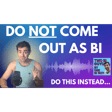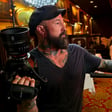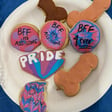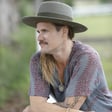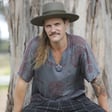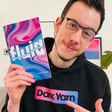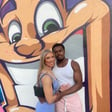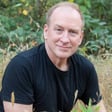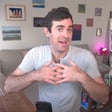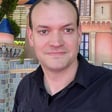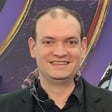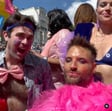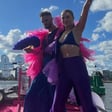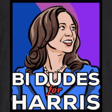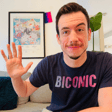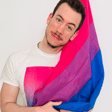
The Spaces Between with Maz Hedgehog (Season Finale)
Happy season 5 finale! We finally got to chat with Maz Hedgehog (they/them), a UK-based bisexual writer, poet, and performer working in the spaces between real and unreal, poetry and theatre, self and other. We chatted about Maz’s bisexual journey, how they realized they were agender and what that means for them, why Maz identifies as a “bisexual dyke” (like Shiri Eisner!), and how their gender and sexuality inform their artistic work, like their recent solo show, “Let Me Count the Ways”. We also discussed the challenges of getting queer art published & produced, how to deal with rejection and failure, how fashion is a form of speech that communicates who we are, and the value of collaboration and imperfection. Also fairies!
Thanks for listening to season 5! Rob will be taking an extended hiatus before season 6 to work on his oral history book, “Bisexual Married Men: Stories of Relationships, Acceptance, and Authenticity”, to be published by Routledge. Stay tuned for info and updates as well as some bonus content and surprises. And please take a moment to rate and review this podcast, and tell your friends -- thanks!
Visit Maz’s website: https://www.mazhedgehog.com/
Buy Maz’s books: https://www.mazhedgehog.com/shop
Follow Maz on Twitter: https://twitter.com/MazHedgehog
Follow Maz on IG: https://www.instagram.com/mazhedgehog/
“Fat, Black, and Myself: Fashion in the Pandemic”: https://azmagazine.co.uk/fat-black-and-myself-fashion-in-the-pandemic/
“Let Me Count the Ways” music composed by Alpha Twang. Follow them on IG: https://www.instagram.com/alpha_twang/
Two Bi Guys is produced and edited by Rob Cohen
Created by Rob Cohen and Alex Boyd
Logo art by Kaitlin Weinman
Music by Ross Mintzer
We are supported by The Gotham
Made on Zencastr #MadeOnZencastr
Use my special link zen.ai/twobiguys1 and use twobiguys1 to save 30% off your first three months of Zencastr professional. #madeonzencastr
We're going on a Bi+ trip to Maine in June 2023! Join the email list to get all the info: https://my.trovatrip.com/public/l/survey/rob-cohen
Go to blendjet.com and use code twobiguys12 to save 12% off your order OR use my special link and the discount will be applied at checkout zen.ai/twobiguys12
